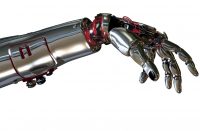Work, like inequality, appears to be a permanent feature of human existence into the foreseeable future. Psychologically, humans do not feel well if they are not working. Or so the story goes.
And work, as we said earlier, is continually reinforced by the language of power. “An honest day’s work for an honest day’s pay.” Ask the working poor about that. Then we hear, “He or she is a great worker”—ironically, a common refrain after someone dies.
On average, two days’ work with your employer covers your wages; and the rest of the money you generate for the next three or four days goes to the boss. Is there anything honest about that?
It’s amazing how many people who are employed are startled when you say that to them. They never quantified it quite like that. Why? They were never told; and because they need a job to survive. They are under pressure with living every day and have no time for “fancy analysis.” And even if or when they did work it out, what are they going to do about it? They have to go to work!
They are in a trap—a wage trap and, worse, a debt trap. Debt seriously curtails the notion of revolution.
And then, when workers find themselves unemployed they are under even more pressure to pay bills. So another job is not a case of “some time, maybe”: it’s vital. But that’s not the case for the average business or employer.
Once a business runs into difficulties there are many options for survival or graceful exit. There’s the “socialism of government” for business for a start. Or another business buys it. The banks or investors can come to the rescue. Or the owners just go bankrupt, pay no-one, and walk off into the sunset with, potentially, accumulated profits and the working capital from the business, then pop up under a new business name shortly thereafter.
These moves are usually well planned in advance. The latter tactic is as old as industry and capitalism itself; and it’s facilitated by laws and government. There are no such choices or avenues for the now unemployed workers.
As we saw in the recent Debenham’s case, not even the rightful redundancy will be paid. The state, its henchmen and police will enforce the will of the company concerned, and they do. We see this also in the case of the proposed Dalradian gold mine in Greencastle, Co. Tyrone. The PSNI take the side of big business. They try to harass, intimidate and prosecute those opposing a highly polluting industry. But that’s not because they have the workers’ interests at heart. No consideration there of the effects on people’s health, or the serious damage to our climate by capitalism.
How many workers over the centuries have been quite simply worked to death? This is another part of work that is deliberately kept under the radar. Asbestosis was one of the earliest consequences of long-term industrial damage to workers. But how long was it hidden, and by whom? Did science know about it very early on? Did doctors notice it too? Was there a conspiracy of silence? How many workers, builders, farm workers and even non-workers have been poisoned or debilitated by industrial chemicals and other industrial processes? How many are now, or will be in the future?
It is well known that, as far as the health and safety bodies north and south are concerned, business, not the workers, comes first. There are any number of potential cover-ups and “nothing to see here” decisions, fuelled by brown envelopes. And all this in the name of profit and greed. The trick is to keep the workers producing ever more profit for the employers and the shareholders.
Surely there must be another way to organise a humane society for all?
At one side of this “work equation” is the worker’s income, such as it is. But the other side is the expense of living.
What if a new type of society, a way of living, along with a new type of democracy, was arrived at? We know we want to end inequality, which leads to poverty. We want to end exploitation in any new society that we might strive for. And we want proper human and social rights for everyone. If the engineered “debt trap” was eliminated or drastically reduced, that surely would make a significant difference in how we live our lives and co-exist.
Consider what it might be like if everyone was entitled to a house as a right when they needed it; that they would pay a nominal rent according to their ability to pay. They would have that house for life as of right. Their child or children could automatically inherit the house. People could move house, “upsize” or “downsize” according to need; all houses built at cost by the state, even one-off houses up in the mountains.
Next, everyone is paid above the living wage. Employers would surely say, “Oh, no, we can’t afford that.” That’s fine; we make your business a worker-owned co-op. The owners can work there too, but not to take all the profits and pay the minimum wage. If you don’t want to work there, that’s fine too. You will get a state pension above the living wage, and off you go.
And if you don’t accept either option then you will be taxed at a level whereby the state can top up workers’ pay to above the living wage, from your tax contributions. Tax based on turnover, by the way, not on profit; and no government-supported loopholes either.
So how happy would the majority, the poor and working poor be now? Those two moves alone could begin to transform society. The need to work incessantly under duress might well become obsolete. And it would certainly have the potential to end inequality and exploitation.
The question is, Would such changes be transformative reforms? Would people begin to see that a new way is possible?
Anyway, the days of the nonsense about employers “providing jobs” must come to an end. The myth of the great “entrepreneur” is another misnomer, used to justify the enslavement of the poor and working poor. Businesses are established for workers to generate money for the rich and ensure profits, full stop. This guff about “creating employment” and “giving back to the community” is just that: guff, and insidious guff at that. We are cajoled, brainwashed and enslaved into thinking that the “trickle-down” system will raise all boats, even though we and they know very well it never has, and is not even designed to do so.
Do they, or will they, teach these facts, or contradict this narrative, in our schools and universities? No. And why not? Might it be that the coming generations would say, Stop! Enough is enough; and be fully versed as to why they were saying Stop; that “meritocracy” is a myth; work might just become an anathema, a life of personal development and enjoyment might beckon?
They might decide to learn about co-operation rather than competition. They might even learn about a new type of democracy, a people’s participatory democracy, power from the bottom up, not from the top down. Might they even learn about humanity, and end the scourge of the 200-year-old capitalist system we live under? They might even have time to confront the ravages of capitalism on our climate.
Would they decide to take matters into their own hands and secure the means of production? The narrative of power could well be replaced by that of the workers.
In time, maybe humans might decide to thrive rather than just survive, have better physical and mental health, have the time to educate themselves as adults too, have time to work in and build within their communities. Maybe we can turn the developments of automation and artificial intelligence to the advantage of workers? Will not being forced to work to live but instead living a happy, contented, fulfilled life become our new normal?






